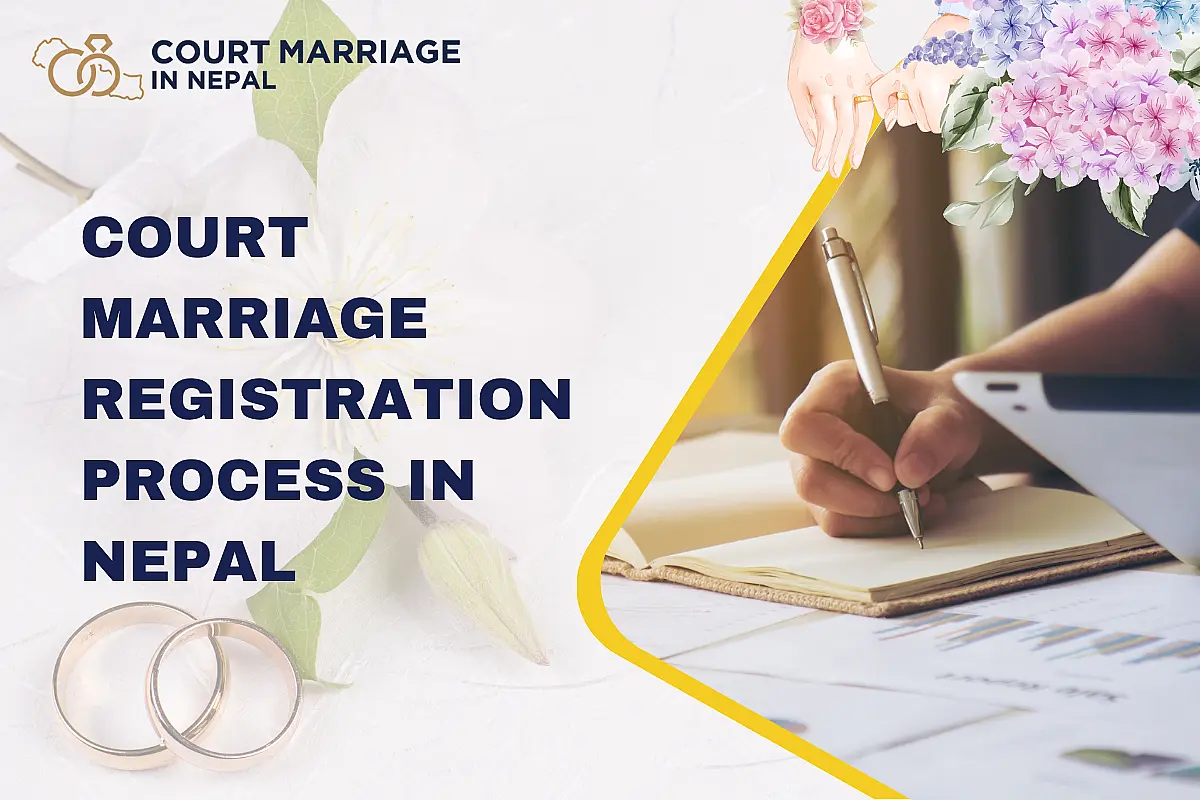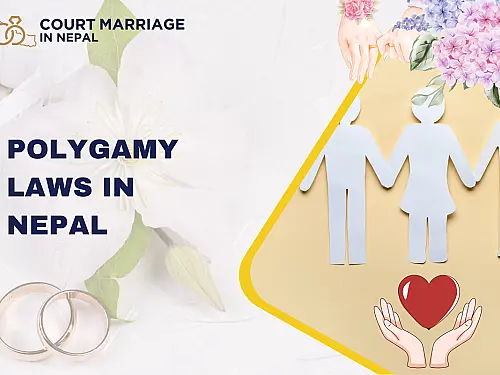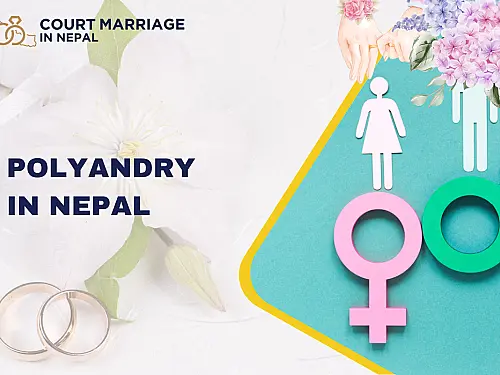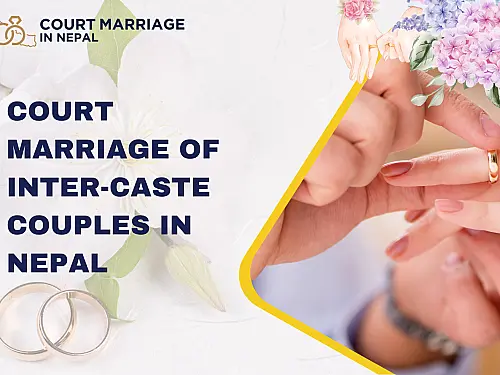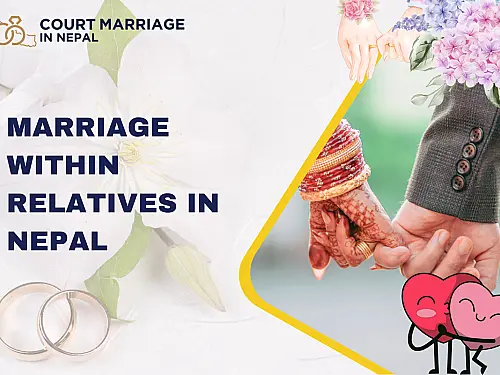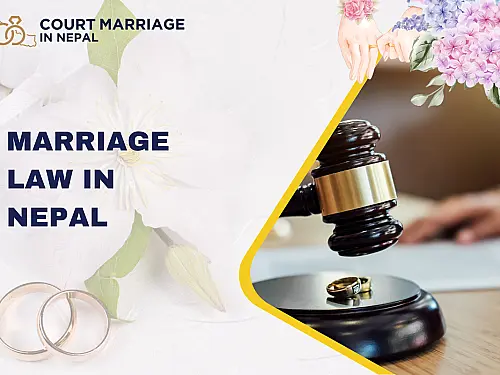Table of Contents
Introduction
Marriage is more than just a ceremony; it's a lifelong commitment that also needs legal recognition. In Nepal, court marriage has become a straightforward and increasingly popular way for couples to make their union official. Whether you're from different castes, religions, or even countries, court marriage offers a simple, respectful, and legally binding process without the need for traditional rituals.
In Nepal, you can get a marriage registration certificate in two main ways:
- Court Marriage: This is when you officially register your marriage through the court. It's a straightforward process that doesn't require any traditional ceremonies.
- Local Government Registration (Ward): This option is for couples who have already gone through social or religious wedding rituals. After the ceremony, you can get your marriage certificate from your local ward office.
Both methods are valid, but court marriage is often seen as a simpler and quicker way to make your marriage official.
Note: If you're outside Nepal, marriage registration is also possible through the Embassy or Consulate Office.
As a lawyer, we often guide our clients through this process because it removes much of the hassle and uncertainty that sometimes comes with marriage registration. The law ensures that your rights and responsibilities as a married couple are protected from day one.
In this article, we'll walk you through the essentials of court marriage in Nepal, what it is, who can apply, and the steps involved, all in clear, easy to understand terms.
Applicable Law for court marriage registration in Nepal
The applicable law for the registration of court marriage in Nepal is the National Civil Code 2017 (Muluki Civil Code, 2074) under the "Chapter of Marriage" (Sections 67 to 84). The relevant sections describe the legal requirements, procedures, and documents required for marriage registration at a court.
Requirements for Court Marriage in Nepal
For both parties to be able to have a court marriage in Nepal, they need to have the following requirements satisfied:
- Age: The couple must have attained 20 years of age; there is no maximum age limit. After both parties attained the age of 20 years, parental consent is not required.
- Consent: The parties must give themselves freely and voluntarily to marry each other. A marriage that is forced or coerced is void and illegal./li>
- Marital Status: The parties must be single, divorced or widowed when applying for a marriage. Neither party can be married to another person.
- Prohibited Relationships: The parties cannot be related within the degrees of consanguinity as prohibited under the law (i.e., they cannot be closely blood-related).
- Residency Requirement: At least one of the parties must have lived in the district where the marriage is being registered for at least 15 days, or otherwise prove residency.
These requirements ensure that the marriage is legally recognized/enforceable under Nepalese law.
Procedure for Registering Court Marriages for Nepalese Citizens
The procedure for registering court marriages among Nepalese citizens is outlined below:
Acquire Single Status Certificate
Each partner needs to obtain a "single status certificate" from their local ward office, verifying their unmarried or divorced status. This certificate is typically valid for 30 days starting from the date it was issued.
Gather Necessary Documents
- Citizenship documents (original and notarized copy)
- Certificates of single status
- Passport-size photographs
- Information about two witnesses (along with their citizenship certificates)
Submit Application to District Court
Submit the marriage registration application at the district court where at least one of you has lived for a minimum of 15 days.
The application needs to contain all necessary documents along with a deed of consent/declaration.
Confirmation and Listening
The court examines the documents and, if content, arranges a hearing.
Both partners along with their witnesses are required to appear before the judge to express their agreement to marry.
Granting of Marriage Certificate
If the application is approved, the court records the marriage and provides the marriage certificate, typically within few days.
Please be aware that the procedure cannot be finalized online, however, legal advice and document creation can be facilitated through the assistance of law firms. The cost of obtaining a marriage certificate is usually NPR 500.
| Stage | Information |
|---|---|
| Single Status Certificate | Acquire from the ward office (valid for 30 days) |
| Documents | Gather citizenship documents, individual certificate, photographs, and information about witnesses. |
| File Application | Submit at district court (proof of residence needed) |
| Court Verification / Hearing | Judge confirms, conducting a hearing with associates and witnesses. |
| Obtain Certificate | Granted in 2-3 days upon approval |
Documents Needed for Court Marriage Between Two Nepali Partners
The subsequent papers are necessary for registering a court marriage between two citizens of Nepal:
- Application Form: Completed and signed application form in the required format.
- Citizenship Certificates: Original and notarized copies of citizenship of both applicants.
- Single Status/Unmarried Certificate: A letter of recommendation from the local ward office of both individuals, verifying they are either unmarried or divorced.
- Documents of Witnesses: Notarized copies of the citizenship of two witnesses (witnesses need to be present during registration).
- Passport-Sized Pictures: Four passport-sized pictures of every applicant.
- Temporary Residence Certificate: When applying in a district different from the permanent address, a temporary residence certificate from the ward office is necessary (a minimum stay of 15 days is required).
- Divorce Decree (if relevant): If either individual has been married before, a divorce decree is necessary.
Overview Chart - Documents Needed for Court Marriage in Nepal
| Documents Needed | Copies / Information |
|---|---|
| Application Form | One set (original) |
| Citizenship Certificate | 1 set (original + certified copy) |
| Single Status / Unmarried Certificate | 1 set (original, obtained from the ward) |
| Citizenship of Witnesses (2) | 1 set (notarized, per witness) |
| Passport-Sized Photos | 4 of each |
| Temporary Residence Certificate (if applicable) | 1 set (original, from the ward) |
| Divorce Judgment (if relevant) | 1 copy |
Timeline for Court Marriage Marriage Registration in Nepal
The process for registering court marriages in Nepal is very efficient for Nepalese citizens. The procedure usually requires 1 to 3 business days from the application submission and necessary documents to the delivery of the marriage certificate, assuming all paperwork is correct and there are no verification delays.
Essential Steps and Estimated Schedule
| Stage | Estimated Duration |
|---|---|
| Gathering & Organizing Documents | 1-3 days |
| Submitting an Application at the District Court | 1 day |
| Court Review & Assessment | 1-2 days |
| Marriage Certificate Issuance | Same day or the following day |
Total: 1-3 business days for citizens of Nepal.
Please be aware that for marriages that include a foreign citizen, the procedure might extend to some days because of extra residency and document checking needs.
The law mandates that the authority must provide the certificate within 15 days of receiving the application, but in reality, it is often finalized much quicker for Nepalese couples.
Extra Documentation Needed for Court Marriage with a Foreign National
If one of you is a foreign national in a court marriage, the standard documents for Nepalese citizens must be supplemented with the following additional documents:
No Objection Certificate (NOC)
A document issued by the relevant embassy or consulate in Nepal affirming the foreigner's qualification to marry (single/divorced status) and that there are no legal barriers to the marriage. This document is essential and should be translated into Nepali and notarized if it's not in English or Nepali.
A passport and a Valid Visa
Original and certified copies of the passport and a valid visa demonstrating legal entry and residence in Nepal.
Verification of Residence in Nepal
A provisional residence certificate from the ward office affirming that the foreigner has lived in Nepal for a minimum of 15 days prior to the marriage application.
Marriage Law of a Foreign Nation
A translated and notarized version of the marriage law from the foreigner's native country in Nepali.
Divorce/Death Certificate (if relevant)
If you were previously married, provide a divorce decree or the death certificate of your former partner.
Passport-sized Photos
Recent photographs (typically four of each).
Identification of Witnesses
Two witnesses must present valid identification documents, like a passport or citizenship certificate.
These documents guarantee adherence to the laws of Nepal as well as the legal obligations of the foreigner's country of origin. The procedure might also necessitate notarization or certified translation for documents that are not in English or Nepali.
Timeline for Marriage Registration When One Partner is a Foreign National in Nepal
In Nepal, when one partner is a foreign national, the court marriage registration process usually spans 16 to 19 days, beginning from the preparation of documents to the release of the marriage certificate. This is mainly because of the compulsory 15-day stay rule and additional procedures for verifying foreign documents.
Sequential Timeline Analysis
| Stage | Estimated Timeframe |
|---|---|
| Stay in Nepal for foreigners is mandatory | For at least 15 days |
| Document gathering and organization | 1-3 days |
| Submission of application at District Court | 1 day |
| Court verification and document review | 1-2 days |
| Marriage certificate issued | Same day or the next day |
Total: 16-19 business days (including 15-day residency).
When accounting for document clarifications or embassy procedures, the timeline could extend to 19-22 days.
Please be aware that the process cannot begin until the foreigner has finished the 15-day visit in Nepal. Every foreign document must be translated and notarized according to the requirements of Nepali law.
Notarization of Marriage Certificate from Court in Nepal
The court marriage certificate is an official document issued by the government and does not need notarization for use in Nepal. The district court issues the certificate, which serves as a legally recognized proof of marriage according to Nepalese law.
Nonetheless, if you need to utilize the marriage certificate internationally or for specific legal procedures outside of Nepal (such as applying for a spouse visa, immigration, or legal matters in another country), you might need to have the certificate notarized and/or apostilled. This procedure usually entails:
- Notarization: Validation by a notary public in Nepal.
- Embassy Authentication: Depending on the nation, you might need to have the certificate legalized through the Ministry of Foreign Affairs and the appropriate embassy.
Conclusion
Court marriage in Nepal is a straightforward and respectful way to legally formalize your relationship. It doesn’t require heavy expenses, grand ceremonies, or religious rituals. All it needs is your mutual love, consent, and some proper paperwork.
By understanding the steps clearly and preparing well in advance, you can complete your court marriage smoothly and begin your new journey together, legally protected and recognized.
Marriage is not just about ceremonies it’s about trust, responsibility, and a shared future. Court marriage gives you a solid, legal foundation for that future.
Wishing you love, happiness, and a beautiful life ahead!
Frequently Asked Questions
At Court Marriage In Nepal, a registered law firm operating as Court Marriage In Nepal Pvt. Ltd., we specialize exclusively in Court Marriage Nepal. As the first law firm in Nepal dedicated to court marriage services, we assist both Nepali citizens and foreign nationals with the court marriage registration process in Nepal, including complete legal support for court marriage registration for foreign citizens in Nepal. As a trusted marriage firm in Nepal and a licensed law firm in Nepal, we ensure a smooth, lawful, and stress-free experience. Contact us today for confidential assistance with court marriage registration in Nepal.

